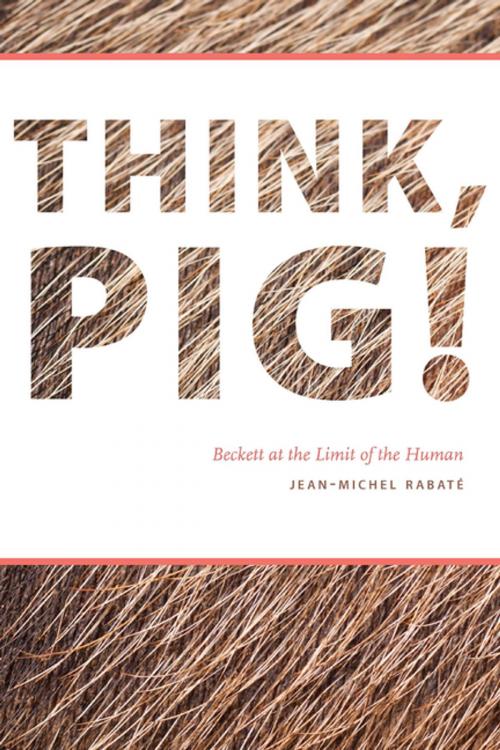Think, Pig!
Beckett at the Limit of the Human
Nonfiction, Entertainment, Performing Arts, Theatre, History & Criticism, Religion & Spirituality, Philosophy, Aesthetics| Author: | Jean-Michel Rabaté | ISBN: | 9780823270873 |
| Publisher: | Fordham University Press | Publication: | July 1, 2016 |
| Imprint: | Fordham University Press | Language: | English |
| Author: | Jean-Michel Rabaté |
| ISBN: | 9780823270873 |
| Publisher: | Fordham University Press |
| Publication: | July 1, 2016 |
| Imprint: | Fordham University Press |
| Language: | English |
This book examines Samuel Beckett’s unique lesson in courage in the wake of humanism’s postwar crisis—the courage to go on living even after experiencing life as a series of catastrophes.
Rabaté, a former president of the Samuel Beckett Society and a leading scholar of modernism, explores the whole range of Beckett’s plays, novels, and essays. He places Beckett in a vital philosophical conversation that runs from Bataille to Adorno, from Kant and Sade to Badiou. At the same time, he stresses Beckett’s inimitable sense of metaphysical comedy.
Foregrounding Beckett’s decision to write in French, Rabaté inscribes him in a continental context marked by a “writing degree zero” while showing the prescience and ethical import of Beckett’s tendency to subvert the “human” through the theme of the animal. Beckett’s “declaration of inhuman rights,” he argues, offers the funniest mode of expression available to us today.
This book examines Samuel Beckett’s unique lesson in courage in the wake of humanism’s postwar crisis—the courage to go on living even after experiencing life as a series of catastrophes.
Rabaté, a former president of the Samuel Beckett Society and a leading scholar of modernism, explores the whole range of Beckett’s plays, novels, and essays. He places Beckett in a vital philosophical conversation that runs from Bataille to Adorno, from Kant and Sade to Badiou. At the same time, he stresses Beckett’s inimitable sense of metaphysical comedy.
Foregrounding Beckett’s decision to write in French, Rabaté inscribes him in a continental context marked by a “writing degree zero” while showing the prescience and ethical import of Beckett’s tendency to subvert the “human” through the theme of the animal. Beckett’s “declaration of inhuman rights,” he argues, offers the funniest mode of expression available to us today.















